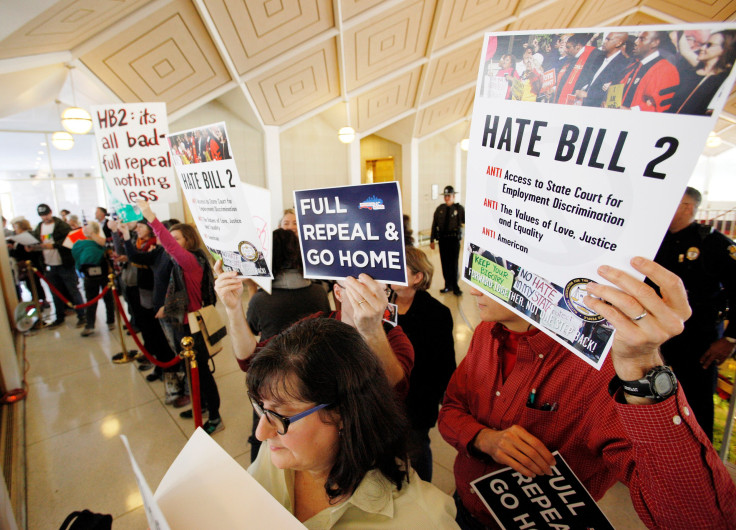North Carolina Repeals Bathroom Bill: Businesses, Sports Organizations Leave State, Hurting Economy

North Carolina's controversial law, which restricted the use of public restrooms by transgender people to the sex specified on their birth certificates, was repealed by the state's lawmakers Thursday after a year of debate over it. North Carolina governor Roy Cooper signed the measure — one that rolled back the state's contentious "bathroom bill" — into law, according to reports.
North Carolina had been under pressure to repeal the bill, known as House Bill Two (HB2). The bill had resulted in businesses, entertainers and sports bodies boycotting the state due to the discriminatory measure, reports said.
Read: Bathroom Bill Approved By Texas Senate
During the existence of HB2, companies and organizations that opposed the law withdrew events from the state and even called off plans that would have created jobs. The 2017 NBA All-Star Game, which was held in February, was moved from Charlotte, North Carolina, to New Orleans. The National Collegiate Athletic Association relocated several college athletic championship events for the 2016-17 season because of HB2. The bill also risked another five years of sporting tournaments in the state, according to CNN.
Despite Republican assurances that the bathroom bill was not affecting the state's economy, the law would have cost the state more than $3.76 billion in losses over the next few years, according to an Associated Press (AP) analysis. In the past one year, the state has taken financial hits such as PayPal's cancellation of plans to open a new global operations center in Charlotte, which would have added about $2.66 billion to the state economy. Former Beatle Ringo Starr cancelled a concert that deprived would have generated $33,000 in revenue, the AP reported.
© Copyright IBTimes 2024. All rights reserved.






















